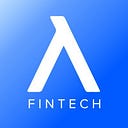Web 3.0 Economy: It’s Bringing Back Bartering
by Marvin Dumont
With bartering, the past has returned. With tokens, the future has arrived.
Distributed ledger technology (DLT) is ushering a new era of trade: Blockchain databases are enabling the barter of goods and services. People can tokenize their possessions and get value: real estate, gold, diamonds, intellectual property.
Fungible (commodity) and non-fungible (unique) assets can partially replace fiat currencies, and tokenized properties can be exchanged for value anywhere that has access to internet.
Will cash be replaced? No. But technology is giving consumers payment alternatives.
Paper bills are an obsolescing instrument.
Sovereign fiats are valued at floating exchange rates against each other. However, these unbacked notes are like floating balloons. Their “value” is misleading in that exchange rate for a Japanese yen fluctuates against U.S. dollar and others. The root problem is this: These “balloons” aren’t tied to underlying assets. Thus, what’s the rationale for their economic value?
Gold’s value is reliable, and therefore it’s a great store of value and medium of exchange. Long after we die, our descendants will continue to find the rare, shiny metal as extremely attractive. Tokenized gold (or silver or diamonds) are arguably better payment options than a highly risky U.S. dollar — which many pundits say will soon crash.
Bartering is back and it’s in digital form.
The floating exchange rates (of sovereign fiats) are fluff, and it features the buoyancy of make-believe economics. What’s the “value” of something that’s literally printed out of thin air? What you have are printed cash that are backed by the “full faith and credit” of a government steeped in $21.5 trillion in debt, and which does not control the national currency supply. (The private Federal Reserve does.)
Commodity money is not the same as fiat cash: The latter is currency derived from paper-cash-printing operation. While commodity money (like gold and silver) have sustainable, long-term buying power.
Our ancestors may be considered primitive but they seemed wise in terms of recognizing what money is. Our forefathers always cultivated, collected, and built real assets. Things that were extremely useful in daily life: grains, fish, bananas, spears, goat’s milk, leather.
Fast forward to today and commodity and non-fungible (non-replaceable) assets can be tokenized so you can buy and sell other assets. This is the revolution of Web 3.0 economy.
Cash may not be as real as you’d expect. Ask any Venezuelan who holds bolivars or Turkish citizen who holds liras. In these countries (and others), you’ll discover multi-millionaires who are hungry and homeless — who hold currency whose value matches the ethics of trusted third parties.
Quote:
“You will never know how much it has cost my generation to preserve your freedom. I hope you will make a good use of it.” — John Adams
Apollo Updates
Apollo is the first all-in-one cryptocurrency that combines all mainstream features into a truly private and unregulatable platform. In Dec. 2018, Apollo launched Olympus Protocol 2.0 which makes APL the most private crypto in the industry.
By Q1 2019 the foundation will release Hermes V.2.0. This new version will introduce Apollo Sharding which will enable the APL blockchain to exceed its current settlement time of 1–2 seconds. (APL is faster than Ripple’s 4 seconds.) At 1–2 seconds, APL is one of the fastest cryptos in the planet.
Blockchain Sharding involves splitting the blockchain into segments. This approach has positive effects on volume of transactions, download speed, blockchain speed, and overall stability of ecosystem. Sharding processes a transaction in different parts, and these are confirmed by nodes much faster when compared to conventional processes. This innovation will make Apollo blockchain faster and more secure.
Another key feature of Hermes 2.0 is Adaptive Block Generation which was released ahead of schedule in Dec. 2018. It refers to creating blocks only in the presence of transactions. A transaction can settle faster by controlling the volume of data stored in the block and by creating a new type of prioritized transaction called “guaranteed transactions.”
For updates, follow Apollo on Twitter. Learn more by reading our whitepaperand technical paper.
See recent announcements:
Apollo To Release Hermes Update By Q1 2019
IP Masking 2.0: It Keeps You Anonymous And Safe
Apollo Releases Android Wallet App
Olympus Protocol 2.0: Advanced IP Masking And Coin Mixing
